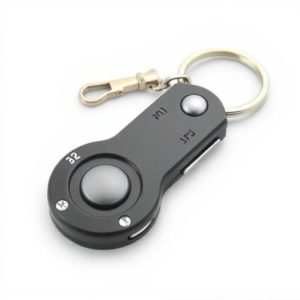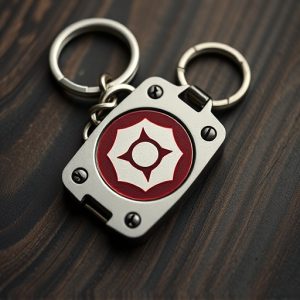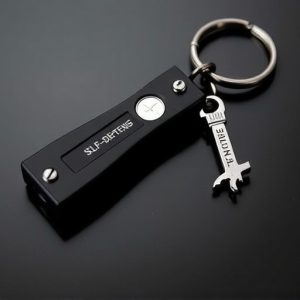University Approved Safety Keychains: Legal Carry Guide for Protection
Protective keyring devices, including self-defense keychains and university approved safety keychain…….
Protective keyring devices, including self-defense keychains and university approved safety keychains, are compact tools offering individuals personal safety features like blades, pepper spray, or alarms. Many US states allow carriage without permits, recognizing their value. University approved safety keychains, tailored to campus concerns, are popular for their convenience and accessibility, promoting student, professional, and general enhanced security. Carrying these devices requires understanding state-specific regulations, as rules vary greatly. These university-approved keychains, rigorously tested and approved by educational institutions, ensure durability and functionality while fostering safer campus environments. They provide quick identification and access to vital information in emergencies, potentially saving lives.
In today’s diverse landscape, personal safety is paramount, especially on university campuses. Understanding protective keyring devices, like University Approved Safety Keychains, offers invaluable peace of mind. This comprehensive guide explores legal carry restrictions across states, delving into the significance of university approval for these essential tools. By navigating legal considerations and ensuring compliance, students can enhance their personal security without compromising safety protocols.
- Understanding Protective Keyring Devices: A Comprehensive Overview
- Legal Considerations for Carry: State-by-State Breakdown
- University Approval: Ensuring Safety and Compliance
- Benefits of Carrying a University-Approved Safety Keychain
Understanding Protective Keyring Devices: A Comprehensive Overview
Protective keyring devices, often referred to as self-defense keychains or university approved safety keychains, are compact tools designed for personal safety. These devices typically feature a keyring with an integrated defense mechanism, such as a sharp blade, pepper spray, or alarm system. They are intended for use in emergency situations, offering individuals a means of protection while promoting ease of carry. Many states in the US have recognized their potential value and established legal frameworks allowing their carriage, often without a permit.
These keyring devices provide a convenient and readily accessible form of self-defense, appealing to students, professionals, and anyone seeking an extra layer of security. Their small size makes them easy to carry on keys or in pockets, ensuring that help is never far away. University approved safety keychains, for instance, are designed with student safety in mind, addressing concerns prevalent on campus environments.
Legal Considerations for Carry: State-by-State Breakdown
When considering legal carry options for a protective keyring device, understanding state-specific regulations is paramount. The right to carry self-defense tools varies significantly across the United States, with each state establishing its own set of rules and restrictions. What’s more, local municipalities within states may further refine these laws, making navigation even more complex.
For those seeking university approved safety keychains, it’s crucial to know that some states allow open carry with minimal restrictions, while others require permits or have strict “concealed carry” laws. A thorough examination of state-by-state guidelines will ensure compliance and peace of mind when carrying a protective device for personal safety.
University Approval: Ensuring Safety and Compliance
Many protective keyring devices, often marketed as University Approved Safety Keychains, are designed with specific considerations for campus safety. Universities and colleges have unique challenges when it comes to securing their students’ belongings and personal safety. With large student bodies and valuable assets on campus, institutions look for innovative solutions like these keychains. They offer a simple yet effective way to deter theft and ensure quick identification in case of emergencies.
The ‘University Approved’ label signifies that these keyrings have undergone rigorous testing and adhere to strict safety standards set by educational facilities. This approval process involves assessing the durability, functionality, and compliance with relevant regulations, guaranteeing that the devices provide the necessary protection without causing any harm. By investing in such approved products, universities contribute to fostering a safer environment for their students, faculty, and staff.
Benefits of Carrying a University-Approved Safety Keychain
Carrying a university-approved safety keychain offers numerous advantages for students and faculty alike, especially in light of growing concerns about personal safety on campus. These keychains are designed with emergency situations in mind, providing a simple yet effective solution for quick identification and access to vital information. With a single glance, first responders can identify the user’s affiliation with the institution, facilitating faster assistance during emergencies.
University-approved safety keychains often include essential details such as contact numbers, medical conditions, and even consent for emergency contacts, ensuring that help reaches the right person promptly. This convenient tool promotes peace of mind, knowing that in an unforeseen event, one’s identity and relevant health information are readily available, potentially saving precious time and lives.
Protective keyring devices, especially university-approved safety keychains, offer a practical solution for personal security on campus and during travel. With varying legal considerations across states, understanding your rights and the benefits of these devices is essential. By ensuring compliance with local laws and university policies, individuals can carry these useful tools legally, promoting peace of mind and enhanced safety measures. University-approved safety keychains are a game-changer for personal protection, providing an accessible and effective way to navigate both everyday situations and emergencies.


